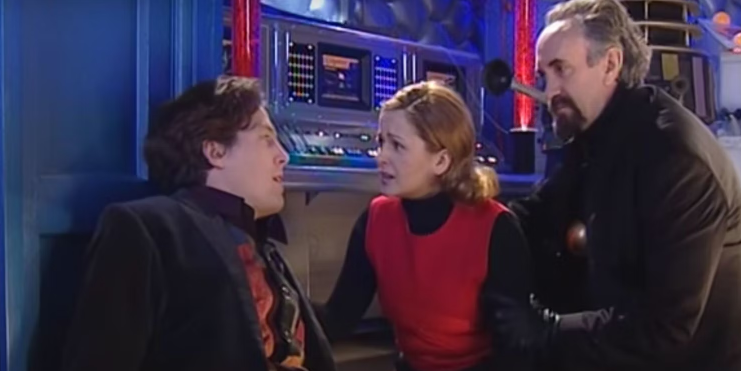“Doctor Who Couldn’t Die Because The Fans Wouldn’t”: Seventh Doctor Reflects On Doctor Who’s Everlasting Legacy
Sylvester McCoy thanks the fans for reviving Doctor Who after its cancellation, reflecting on the sci-fi series’ return and lasting legacy.
Sylvester McCoy looks back on Doctor Who’s original cancelation and eventual return, as the Seventh Doctor actor states that “Doctor Who couldn’t die because the fans wouldn’t let it”. The actor was the final person to play the leading Time Lord during the BBC sci-fi series’ original run, with McCoy’s final 1989 adventure “Survival” marking the conclusion of the show’s classic era in 1989. Despite the series’ cancellation, McCoy would receive the opportunity to hand over the role to Paul McGann’s Eighth Doctor in the 1996 TV movie, and later return as the Seventh Doctor in audio dramas and a cameo in 2022’s “Power of the Doctor”.
When reflecting on his life and career for his 90th birthday to Radio Times in an interview, McCoy opened up about his thoughts on Doctor Who’s 1989 cancellation. While the chances of a full television revival wouldn’t manifest until the show’s return in 2005, McCoy stated that he knew Doctor Who’s strong fandom would ensure that the series would never truly fade away and die, praising the work of fan-turned-two-time Doctor Who showrunner Russell T Davies for eventually helming the show’s successful revival. Check out McCoy’s full response below:
We all knew Doctor Who couldn’t die because the fans wouldn’t let it. In fact, the fans brought it back – Russell T Davies was a fan! I was speaking to him the other day and he told me he was 16 or 17 and he was a huge fan and he was heartbroken [by the cancellation]. So the fans, what they did, was decided to sneak their way into the BBC and bring it back.”
How Doctor Who Fans Shaped The Series Following Its 1989 Cancellation

While excitement for 2023’s Doctor Who’s 60th anniversary celebrations and the upcoming Ncuti Gatwa-led season 14 proves it remains an incredibly popular title, the show was in a much dire situation during the 1980s in the run-up to its cancellation. Seen as unable to keep up with popular sci-fi at the time by influential individuals, including then-BBC controller Michael Grade, the series suffered an extended hiatus, shifting time slots, creative oversight that included the removal of McCoy’s predecessor Colin Baker, before culminating in the show’s cancellation. Despite hopes that an American TV revival could lead to the show’s return, low US viewership of the TV movie led to McGann’s potential season not going ahead.
Thought it was off television for 15 years, Doctor Who would live on through audio dramas and novels that gave fans of the show an opportunity to add their own tales within the universe. Writers who penned novels and audio drama scripts during this time would eventually contribute to the 2005 revival, including Davies, Mark Gatiss, and Robert Shearman. Meanwhile, fellow showrunner Steven Moffat would develop the Red Nose Day comedic Doctor Who tribute “The Curse of Fatal Death” alongside director Ian Curtis, poking fun at the series in a light-hearted but loving manner.
With showrunners Davies, Moffat, Chris Chibnall, and a number of major creatives for Doctor Who’s revival all originally being fans of the series, McCoy’s comments perfectly capture the show’s unique situation. Despite waning viewership and executive meddling, these fans-turned-creatives were able to re-establish the sci-fi series as an incredibly successful property for the BBC once more. Furthermore, as fans of the revival become involved in the show themselves, Doctor Who’s fandom will continue to ensure further adventures in space and time for many years to come.


